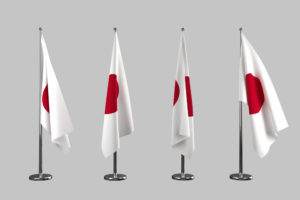Data visualisation depersonalizes discussions, but you still need the people to make a judgement
I often advise Europeans who are trying to communicate a proposal, or want to have a discussion with Japanese counterparts to try to put their idea into a visual format. This has several benefits. One is that it should reduce the amount of English text that the Japanese person has to plough through to understand what is being proposed. A second reason is that it depersonalizes the discussion if there is a graphical representation – a “thing” that can be pointed at and disagreed with during the argument, rather than having to argue with someone’s abstract idea.
Thirdly, Japanese written language – kanji – is highly graphical as a communication method, so Japanese people are more receptive to complex concepts being communicated in a graphical and holistic way rather than the textual, linear form common in the West.
So I was quite surprised to hear a young Japanese expatriate woman tell me that her colleagues in the UK based market research agency she works for are much more accustomed to representing their findings in a graphical way than she was used to in Japan. Specifically, she said that they use infographics and sometimes even send the report to clients as a video, using the infographics and clips of customers being interviewed.
With the advent of “Big Data”, data visualization is a growing industry. So should Japanese companies be acquiring companies or hiring people who have those skills, or is this another area which will simply be automated, and all that is needed is to buy in or develop some software?
Automation tools already exist for data visualization, but the key is to think about why you want to put the data into a visual format in the first place. It is usually to give insights which will then provoke a discussion. An infographic does not of itself provide the solution. Discussions require human beings to provide their different interpretations of the infographics and ideas about how to act on them. The infographic provides the “thing” that can be pointed at and disagreed with, but also allows people of diverse backgrounds and native languages to have a more equal chance of contributing to the debate, because there is less of a language or technical barrier.
The market research agency at which the Japanese woman worked was founded in the UK and acquired by a Japanese company in 2014. But it also has offices across Asia, multinational staff who travel across Europe and a call centre based in the UK covering over 30 languages.
The UK is the obvious location for global marketing services, not just because it is the home of English language communication, but because of its multinational workforce, who can ensure the data is interpreted appropriately for different cultures. This is why Japanese marketing and advertising agencies have been acquiring many British companies recently. I just hope Brexit does not damage this advantage by putting up too many barriers to immigration and free movement across Europe.
This article by Pernille Rudlin originally appeared in Japanese in the Teikoku Databank News and also appears in Pernille Rudlin’s new book “Shinrai: Japanese Corporate Integrity in a Disintegrating Europe” – available as a paperback and Kindle ebook on Amazon.
For more content like this, subscribe to the free Rudlin Consulting Newsletter. 最新の在欧日系企業の状況については無料の月刊Rudlin Consulting ニューズレターにご登録ください。
Read More
 The lag between the UK’s growth rate and the rest of the world
The lag between the UK’s growth rate and the rest of the world Pernille Rudlin is interviewed by BBC World Service Business Matters on Theresa May’s trade delegation visit to Japan and the likelihood of being able to get any kind of commitment to a trade deal. You can hear it or download it
Pernille Rudlin is interviewed by BBC World Service Business Matters on Theresa May’s trade delegation visit to Japan and the likelihood of being able to get any kind of commitment to a trade deal. You can hear it or download it  rudlin
rudlin rudlinconsulting
rudlinconsulting